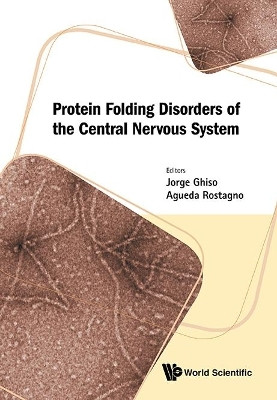Protein Folding Disorders Of The Central Nervous System(English, Hardcover, unknown)
Quick Overview
Product Price Comparison
This exciting new book explores the dark side of the molecular protein assembly bringing an updated view of how failures in the homeostatic mechanisms that efficiently regulate protein folding leads to the accumulation of structurally abnormal pathogenic assemblies, encompassing an emerging group of diseases collectively known as 'Protein Folding Disorders.' This complex and diverse group of chronic and progressive entities are bridged together by their relationship to structural transitions in the native state of specific proteinaceous components, which for reasons poorly understood, convert into polymeric aggregates that generate poorly soluble tissue deposits and which are considered today the culprit of the disease pathogenesis in their respective diseases. Despite the diversity in the amino acid sequence of the different proteins involved in these heterogeneous disorders, all the pathologic conformers can trigger cascades of events ultimately resulting in cell dysfunction and death with devastating clinical consequences in many of the most precious aspects of human existence including personality, cognition, memory, and skilled movements.This book, which is composed of a compilation of chapters authored by outstanding and well-published scientists in the respective fields currently performing active investigations at world renowned universities and research centers, focuses on the growing number of diseases associated with protein misfolding in the central nervous system. Individual chapters are dedicated to the most common neurodegenerative diseases associated with protein aggregation/fibrillization focusing on the nature of the pathogenic species and the cellular pathways involved in the molecular pathogenesis of Alzheimer's, Parkinson's, and Huntington's diseases as well as in Amyotrophic Lateral Sclerosis, and Prion disorders. A group of contributions is centered on the current knowledge of the intracellular pathways and subcellular organelles affected by the different disease conditions, while others are focused in the emerging pathogenic role of misfolded subunits assembled into neurotoxic soluble oligomers, and in the novel notion of the transmissibility of the protein misfolded species, an innovative concept until recently only accepted for Prion diseases. Lastly, a different set of chapters is dedicated to the evaluation of novel therapeutic strategies for these devastating diseases.


